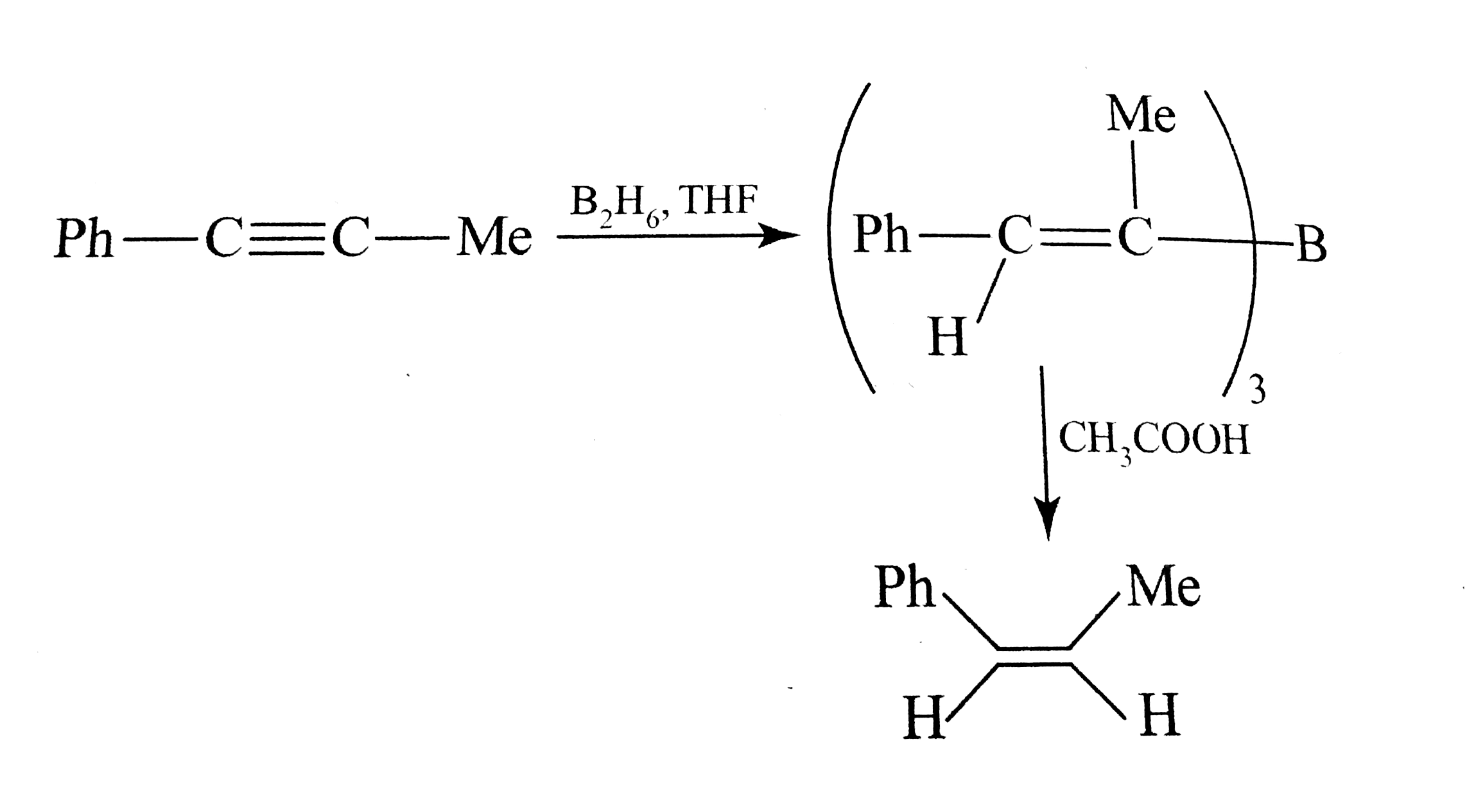
(A) and (B)are:
A

B

C

D

Video Solution
Text Solution
The correct Answer is:c.,
Hydroboration reaction first gives R3B and then with CH3COOH, it gives cis−alkene. 
|
Topper's Solved these Questions
- ALKENES AND ALKADIENESBook:CENGAGE CHEMISTRYChapter:ALKENES AND ALKADIENESExercise:Archives(ASSERTION-REASIOING)
Explore 4 Videos
- ALKENES AND ALKADIENESBook:CENGAGE CHEMISTRYChapter:ALKENES AND ALKADIENESExercise:Fill in the Blanks
Explore 3 Videos
- ALKENES AND ALKADIENESBook:CENGAGE CHEMISTRYChapter:ALKENES AND ALKADIENESExercise:Multiple Correct Answer Type
Explore 41 Videos
- ALKANES AND CYCLOALKANESBook:CENGAGE CHEMISTRYChapter:ALKANES AND CYCLOALKANESExercise:Archives
Explore 13 Videos
- ALKYNESBook:CENGAGE CHEMISTRYChapter:ALKYNESExercise:Exercises (Archives - Analytical and Desriptive Type)
Explore 4 Videos
Similar Questions
Knowledge Check
If the vectors a, b and c are coplanar, then ∣∣ ∣∣abca⋅aa⋅ba⋅cb⋅ab⋅bb⋅c∣∣ ∣∣ is equal to
A1B0C−1DNone of these 3
For any sets A and B, prove that :
(i) (A−B)∩B=ϕ
(ii) A∪(B−A)=A∪B
(iii)(A−B)∪(A∩B)=A
(iv) (A∪B)−B=A−B
(v) A−(A∩B)=A−B
View SolutionIf A = (a + b , a-b) and B (-a + b, -a-b), then find the distance AB .
View Solutionthe symmetric difference of A and B is not equal to (A−B)∩(B−A) (A−B)∪(B−A) (A∪B)−(A∩B) {(A∪B)−A}∪{A∩B}
View SolutionA−B is equal to a.(A∪B)−(A∩B),b.A∩BC,c.A∩B,d.B−A
View SolutionVerify the
(a+b)(a+b)(a+b)=a3+3a2b+3a2b+3ab2+b3
View SolutionIf a, b and c are in GP, then b−ab−c+b+ab+c=
View SolutionFind the distance between the points A (a+b,a−b)andB(a−b,−a−b)
View Solution

